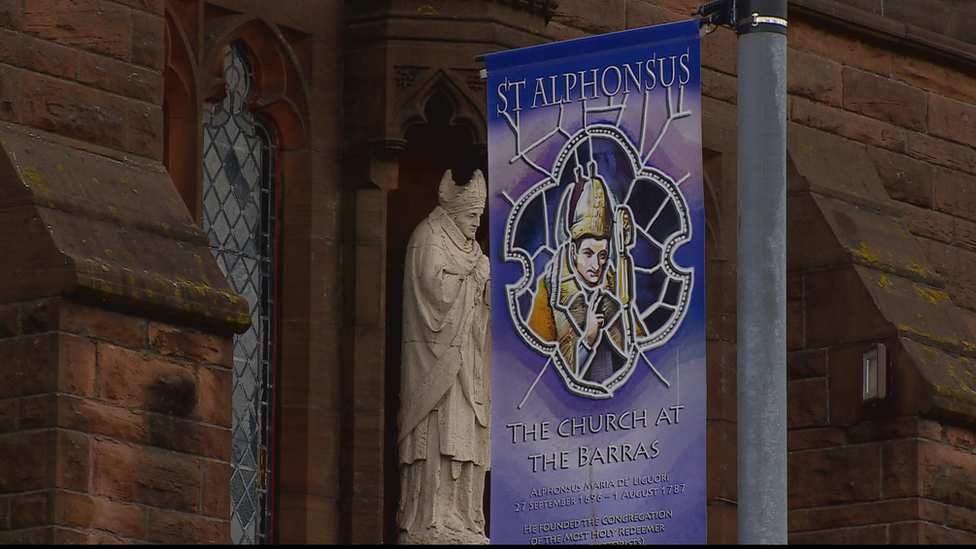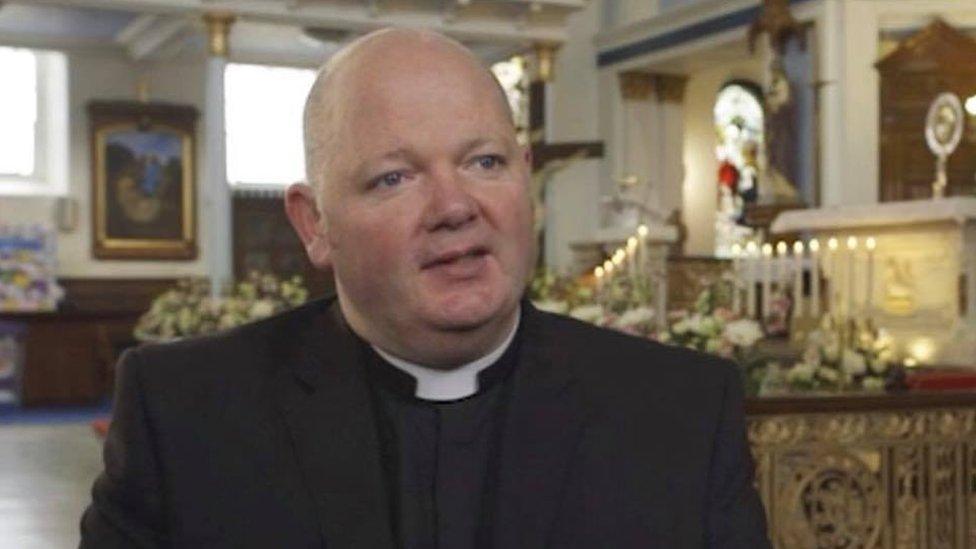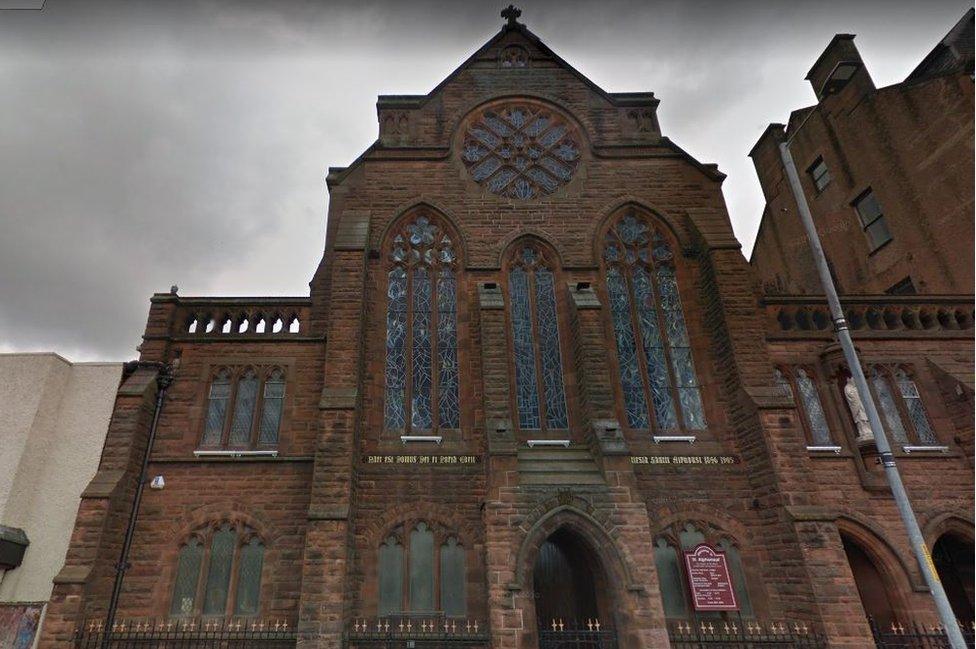Re-routing of Loyalist marches upheld by courts
- Published

St Alphonsus Church is close to the Barras market in the east end of Glasgow
A court challenge to a decision to re-route four Loyalist parades through Glasgow has failed.
The marches were due to pass a church where a Catholic priest was assaulted last year.
Glasgow City Council said the route had been changed after Police Scotland raised concerns about the "marches and counter protests".
But a bid by four Orange Order groups to overturn the decision has been thrown out at Glasgow Sheriff Court.
Sheriff Stuart Reid said: "Glasgow City Council had applied the law correctly, based on correct material facts and have used their discretion in a reasonable manner."
The re-routed marches are due to take place on Saturday and Sunday.
Thomas Porteous, Scottish amalgamated committee chairman for the Apprentice Boys of Derry, told BBC Scotland he was disappointed with the decision and said it was likely the march planned for Saturday will not go-ahead.

Canon Tom White was spat on outside the church in London Road during the annual Orange Order Boyne march last July
The parades were due to pass St Alphonsus Church on London Road, where Canon Tom White was spat on during the Orange Order Boyne march last July.
Police Scotland told the council that, without changing the route away from that stretch of London Road, the force would need to call in officers from across the country in order to safely manage the marches.
The changes have been made using the delegated powers of council officers instead of the usual route of through the local authority's public processions committee.
'Difficult and anxious'
Four Orange Order groups - Bridgeton Orange and Purple District 37, Dalmarnock Orange and Purple District 50, Dalmarnock No Surrender Branch Club and the Apprentice Boys of Derry (Bridgeton)- lodged an appeal at Glasgow Sheriff Court against the council's decision.
The groups' lawyer, Neil MacDougall, told the court that all his clients were "seeking to do is exercise their rights to walk where they have walked for the last 15 to 20 years with largely no incidents.
"They gave their notifications in January and March this year and there was no issues until 18 May."
Sheriff Reid awarded in favour of the council in a hearing which lasted over two hours.
He said: "This was a difficult and anxious point.
"I am satisfied that the council has the statutory power imposed to re-route public processions.
"The right to freedom of expression is not an unrestricted right on particular grounds."

St Alphonsus Church is on London Road in the east end of Glasgow